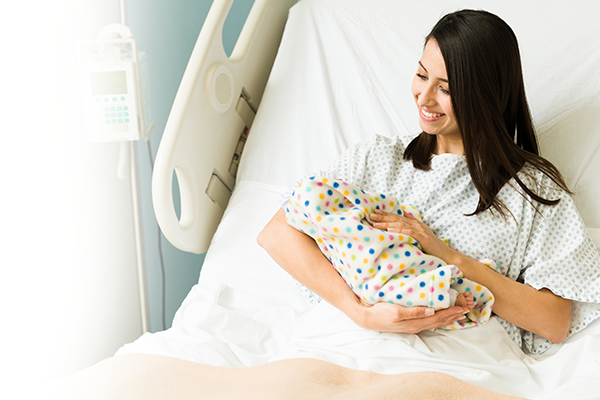Clotrimazolum is an antifungal drug, very often used for vaginal infections. Drugs with clotrimazole are also available at the pharmacy without a prescription. Nevertheless, before using them, always read the package insert, especially the drug's contraindications. Antifungal cream is not recommended for pregnant women unless the doctor decides otherwise. When can it be used and are there other medications available for vaginal candidiasis?
Clotrimazolum in the first trimester of pregnancy
Drugs whose active ingredient is clotrimazole have antifungal activity. Depending on where they are applied, they can be in various forms, such as ointment, cream, liquid, drops, and vaginal tablets. They are often used in genital infections, especially in vaginal fungal conditions. Depending on the concentration of the active ingredient, they are available without a prescription or only on a doctor’s recommendation. In addition to infections of genital mucous membranes caused by yeasts, clotrimazole is also effective against dermatophyte-induced superficial dermatophytes. In the form of drops, it is used in some middle and external ear infections, so it has a very versatile effect.
However, the drug is not indicated for women in the first trimester of pregnancy, unless the doctor decides otherwise. Although its use at a later stage is allowed, it should still be decided by a gynecologist. Contraindication is hypersensitivity to any of the substances. Clotrimazole preparations should also not be used on the mammary glands during breastfeeding, as the active ingredient can penetrate breast milk. The doctor in charge of the pregnancy considers each case of fungal infection on an individual basis and decides on the use of the drug, so it happens that some patients are recommended to use it even in the first weeks of expecting a baby. This may mean that the infection caused by the fungi is developing so intensely that there is a risk that it will bring more adverse effects than the use of a clotrimazole preparation.
Also find out:
What drugs are safe during pregnancy?
Side effects of clotrimazloum ointment during pregnancy
If the mother-to-be has an increased sensitivity to the drug’s active ingredient, side effects may occur, including. Burning, erythema, swelling, hives and even peeling of the epidermis. If any symptoms occur, consult a specialist as soon as possible, who will recommend other treatment.
How to treat intimate infections during pregnancy?
Mom-to-be should not underestimate the symptoms of intimate infections. Untreated ringworm can recur, leading to dangerous complications, so do not delay visiting a specialist. Early diagnosed lesions usually require a few days of treatment. On the other hand, failure to treat can lead to infection of the baby during delivery. The toddler may then develop thrush and fungal diaper dermatitis.
Candidiasis is usually caused by fungi of the Candida genus. Infection occurs when the balance of the vaginal biocenosis is disturbed. This occurs when the body is weakened, but candidiasis can also be sexually transmitted. Pregnant women are particularly susceptible to fungal lesions due to fluctuations in their body’s hormones.
Also find out:
Intimate infections in pregnancy
Vaginal mycosis – prevention
To prevent intimate lesions, the most important thing is to take care of hygiene. Disruption of the vaginal biocenosis, in addition to hormonal changes, can also be caused by certain color cosmetics available in popular drugstores. Above all, the mother-to-be should pay attention to always use her own towels in places where there are a lot of people, such as swimming pools, but also in gyms, and in public restrooms, if she has to use them, to have antibacterial intimate hygiene wipes with her. Susceptibility to fungal infections also increases with antibiotic therapy, so it is important to consult a specialist about the need to use them, and if there are indications to take them, use probiotics at the same time. Pregnant women should also avoid tight underwear, especially those made of non-breathable materials.
The mother-to-be should use dedicated intimate hygiene products to help her take care of the proper vaginal pH. Preparations for pregnant women should have a pH of 5.5 and contain lactic acid. It’s worth avoiding sponges and washes, which unfortunately harbor bacteria, and if you experience worrisome symptoms, you can wash the irritated areas with, for example, water with the addition of chamomile, which also has antibacterial and astringent effects. It reduces itching, as well as swelling.
Read also:
Vaginal mycosis in pregnancy – symptoms, treatment and risks.
Rate this article:









